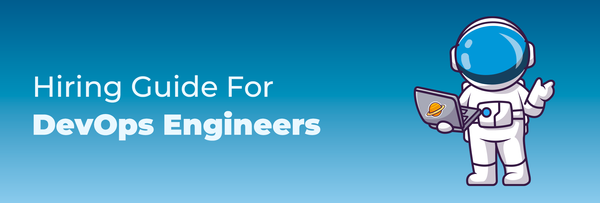The Ultimate Guide to Building High-Performing Remote Engineering Teams for Startups in Australia: Faster and More Cost-Effective Than Local Recruitment

In today's rapidly evolving tech landscape, startups in Australia are increasingly turning to remote engineering teams to stay competitive.
In 2023, a notable 63% of Australians expressed a desire to continue working remotely even after pandemic-related restrictions were lifted, reflecting a significant shift in workplace preferences.
By 2022, 34% of Australian businesses had already adopted teleworking arrangements for at least part of their workforce.
This ultimate guide explores how startups can build high-performing remote engineering teams that are faster to assemble and more cost effective than traditional local recruitment.
Discover practical strategies and approaches to leverage global talent and embrace remote work best practices for remarkable efficiency and innovation.
Why Go For Remote Engineering Teams?
Remote work offers many advantages for both engineers and development leaders.
Let’s examine the main benefits of remote engineering practices:
- Global Access to Talent
Remote engineering teams can leverage a worldwide talent pool through solutions like Teamo, enabling companies to discover skilled engineers regardless of geographical limitations.
This approach not only enriches teams with diverse perspectives and specialized expertise but also enables businesses to expand confidently.
Teamo's innovative talent solution seamlessly integrates top-tier, pre-screened software developers from emerging markets, ensuring fast, affordable solutions and extensively vetted talent.
- Cost Savings
Hiring remote engineers reduces costs related to office space and overheads. Companies can save on rent and utilities while maintaining productivity.
In addition, developers in remote locations are often available at lower rates.
- Increased Productivity
Numerous recent studies have indicated that productivity levels tend to be higher among individuals working remotely from home compared to those in a traditional office environment.
On average, remote workers spend 10 minutes less each day being unproductive, dedicate an additional day to work per week, and exhibit a 47% increase in productivity.
Moreover, remote engineers benefit from eliminating commuting time, enabling them to focus more effectively on tasks without the time constraints associated with travel.
- Improved Retention
A better work-life balance and job satisfaction often lead to lower turnover rates in remote engineering teams.
The opportunity for remote work is widely perceived as a significant advantage, with 81% of workers affirming that the ability to work remotely would increase the likelihood of them recommending their company to a friend.
Did you know that remote workers express a higher inclination to remain in their current position for the next five years compared to onsite workers, indicating a 13% greater likelihood of retention?
- Environmental Benefits
Remote engineering contributes to environmental sustainability by reducing daily commutes, greenhouse gas emissions, and energy consumption in workspaces.
According to the Global Workplace Analytics report, the emissions attributed to remote workers are equivalent to removing 600,000 cars from the road for a year.
Additionally, the report highlights that adopting a half-week remote work schedule can result in a reduction of emissions by 54 million tons annually.
How To Build High-Performing Remote Engineering Teams For Startups in Australia
Here are some practical strategies for building high-performing remote engineering teams for startups in Australia.
- Determine Key Skill Sets
The initial and vital stage in constructing a remote team involves identifying the precise skill sets essential for prospective team members.
These skill sets encompass both soft and hard skills.
Soft skills, such as effective communication and adaptability, are fundamental for remote workers.
Operating remotely demands a level of self-discipline and responsibility not always prevalent in traditional office settings.
Candidates should demonstrate exceptional communication abilities and be adaptable to the company's culture, considering potential cultural disparities due to team members' diverse geographical locations.
According to a research study carried out by Harvard University in collaboration with the Carnegie Foundation and Stanford Research Center, it was revealed that 85% of job success is attributed to possessing proficient soft and interpersonal skills.
Regarding hard skills, requirements will vary based on the role's nature.
For example, a dedicated development team necessitates robust technical expertise in areas such as programming languages, agile methodologies, project management tools, and more.
Additionally, the dynamic digital sphere mandates team members to exhibit a continuous learning ethos, enabling them to keep abreast of emerging trends and technologies.
- Establish Your Location and Timeline
The flexibility to recruit from any geographic location stands out as a significant advantage when constructing a remote team.
Nonetheless, practical considerations such as time zone disparities, cultural differences, employment regulations, and operational practices need careful consideration.
Determining where to recruit from and establishing a timeline for the entire onboarding process are pivotal decisions in remote team formation.
The timeline should accommodate factors like notice periods in various jurisdictions and the speed at which the new team member can commence contributing to your project.
The choice of location can impact the talent pool accessibility, expenditure, and regulatory compliance for recruitment.
Embracing remote recruitment enables access to talent pools worldwide, broadening the spectrum of skills and experiences available to your organization.
However, ensuring legal authorization and infrastructure readiness for recruitment in a specific country remains imperative.
- Foster Team Culture
In remote team building, a company's culture serves as the linchpin, profoundly impacting team spirit.
Engaging activities, such as virtual team-building exercises, online meetings, and virtual social gatherings, foster a sense of belonging and friendly camaraderie.
Establishing effective communication channels is essential for nurturing your company's culture remotely.
Platforms like Slack offer diverse channels for employee interaction, facilitating work discussions, casual conversations, and spaces for celebrating achievements.
Did you know that nearly 80% of the top companies in the Fortune 100 utilize Slack?
Other platforms such as Microsoft Teams, Google Workspace, and Zoom provide similar functionalities, offering various channels for employee interaction, supporting work discussions, casual conversations, and spaces for recognizing achievements.
Fun Fact: In 2022, Zoom recorded a revenue of $4.3 billion, marking a year-on-year increase of 7.3%.
- Develop Employee Engagement Plans
Engagement levels among Australian employees fall below global averages, with 75% reporting being engaged at work.
This figure slightly trails the global average of 77% and the APAC average of 76%, showing a one-percentage-point decrease from the previous year.
Implementing an employee engagement plan proves invaluable, providing a structured approach to enhancing team cohesion and morale.
A customizable template for employee engagement assists managers in tailoring activities and communication strategies to suit the specific needs and dynamics of their remote team.
- Implement Agile Methodologies
Approximately 52% of companies incorporate agile methodologies in more than half of their projects, while an equivalent proportion of professionals from diverse industries utilize agile methods for the majority of their project work.
In Australia, integrating Agile methodologies proves advantageous for managing projects iteratively and adaptively, particularly within remote engineering teams.
By embracing Agile development principles like iterative development, continuous feedback loops, and regular retrospectives, virtual teams can sustain productivity and responsiveness in remote settings.
Effective utilization of communication and collaboration tools becomes paramount for facilitating Agile ceremonies such as daily stand-ups, sprint planning sessions, and sprint reviews.
Emphasizing transparency and visibility regarding project progress fosters alignment and accountability among remote team members.
Moreover, customizing Agile development practices to address remote work challenges, including time zone disparities and communication obstacles, becomes crucial for optimizing the benefits of Agile methodologies within distributed teams.
Empower Your Australian Remote Engineering Teams with Teamo
With Teamo's exceptional talent pool, startups in Australia gain access to top-tier, pre-screened software developers from emerging markets.
Key Features of Teamo
- Seamless Integration: Seamlessly incorporate top-tier software developers from emerging markets into your development team.
- Swift and Cost-Effective: Quickly access high-caliber talent without the delays and expenses typically associated with traditional local recruitment.
- Thoroughly Vetted: Rely on Teamo's rigorous vetting process to ensure the quality and reliability of remote professionals, saving valuable time and resources.
FAQs
- Can you provide an example of a successful startup that has built a high-performing remote engineering team in Australia?
One notable success story is Red Guava, the company behind Cliniko, a widely-used healthcare practice management system utilized by clinics and hospitals in over 55 countries.
Red Guava's approach to building a high-performing remote engineering team emphasizes a focus on people and genuine compassion.
For instance, Cliniko's standout feature is its robust support community, comprising an active forum and responsive phone and email assistance.
Internally, Red Guava extends this compassion to its team by offering full-time pay for a 30-hour workweek, demonstrating a commitment to employee well-being and work-life balance.
- Why is team building important for remote teams?
In the realm of remote work, where face-to-face interactions are limited, team building emerges as a vital tool for fostering camaraderie, trust, and collaboration among geographically dispersed team members.
Through engaging in team-building exercises, remote teams can overcome challenges, build mutual respect, and cultivate a positive work culture, resulting in heightened productivity and job satisfaction.
Notably, a Gallup survey found that 21% of remote workers experienced feelings of isolation while working independently.
This underscores the importance of team building in promoting a sense of belonging and unity, motivating team members to collaborate effectively towards shared goals, even within a virtual environment.




